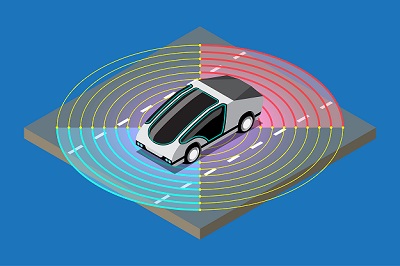Of course, a LiDAR annotation outsourcing company can be used as a multifunctional provider to meet different types of LiDAR data annotation demand. The technology LiDAR (light detection and ranging) is common in autonomous vehicles, robotics, and many other applications for mapping three-dimensionally or detecting objects.
Some of the ways Outsourcing Company can cater to diverse LiDAR annotation requirement
Here’s how an Outsourcing company can cater to diverse LiDAR annotation requirements:
1. Point Cloud Annotation:
Point cloud data is produced by LiDAR sensors, and the annotation of this generated dataset plays a significant role in the process of training machine learning models. An outsourcing company may offer data labeling services to objects that are in the point cloud; these can be, for instance, vehicles, pedestrians, or other relevant entities.
2. Object Detection and Classification:
The process of annotation for LiDAR data includes the detection and labeling of objects in a three-dimensional space. This includes tagging vehicles, pedestrians, cyclists, and other objects to teach algorithms for object identification.
3. Bounding Box Annotation:
As with 2D images, LiDAR data can be annotated using bounding boxes to accurately identify the spatial boundaries of objects. This is critical for preparing algorithms to detect and pinpoint objects precisely.
4. Semantic Segmentation:
In the semantic segmentation of LiDAR point clouds, each point can be assigned to one or multiple object categories. It is therefore essential for the development of high-resolution maps and the enhancement of 3D environment understanding.
5. Lane Marking Annotation:
Road information can be recorded by LiDAR, which would enable an outsourcing company to perform the required lane marking and boundary road labelling services. This is particularly important for self-driving cars and ADAS.
6. 3D Object Tracking:
However, LiDAR data annotation can also be extended to tracking objects in 3D space across time. This includes tagging items across several frames, allowing algorithms to comprehend object movement and motion.
7. Custom Annotation Services:
The requirements for LiDAR annotation services may differ depending on the specific needs of a particular project. A third-party provider of these services can provide custom annotation solutions according to the specific needs presented by a project, thereby maintaining flexibility and adaptability.
8. Quality Assurance and Validation:
Accuracy is essential in annotating LiDAR data. The quality assurance steps that outsourcing companies can apply to validate annotations also ensure that the labeled data meets satisfactory standards.
9. Scalability:
Having the necessary equipment enables outsourcing companies to execute large-scale LiDAR data annotation projects quickly. This scalability is useful for projects that involve large datasets or strict deadlines.
10. Expertise and Technology Infrastructure:
In turn, experts well versed in LiDAR data analysis and having the proper technology infrastructure are usually engaged by outsourcing companies that focus on providing such annotation services. This guarantees an accurate and speedy annotation process.
The selection of a well-known third-party vendor for LiDAR annotation requirements can help simplify the process of data annotations, where businesses have to delegate their core goals and leverage professional outsourcing services. Contact Infosearch for LiDAR annotation services.
Popular Tags
lidar annotation, lidar annotations, 3d lidar annotation, 3d annotation tool, 3d data annotation, 3d point cloud annotation, 3d point clouds, point cloud annotation








Recent Comments